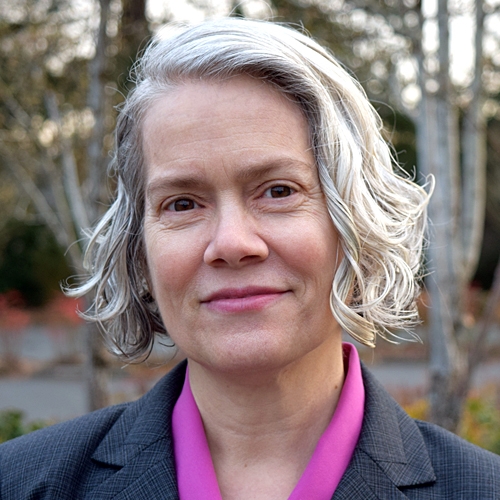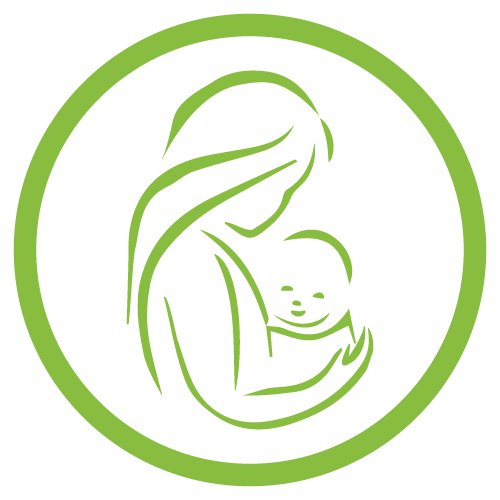 IBCLC Detailed Content Outline: Psychology, Sociology, and Anthropology Focused CERPs - Section V
IBCLC Detailed Content Outline: Psychology, Sociology, and Anthropology Focused CERPs - Section V
Access CERPs on Psychology, Sociology, and Anthropology for the IBCLC Detailed Content Outline recertification requirements. Enjoy convenient on-demand viewing of the latest Psychology, Sociology, and Anthropology focused IBCLC CERPs at your own pace.
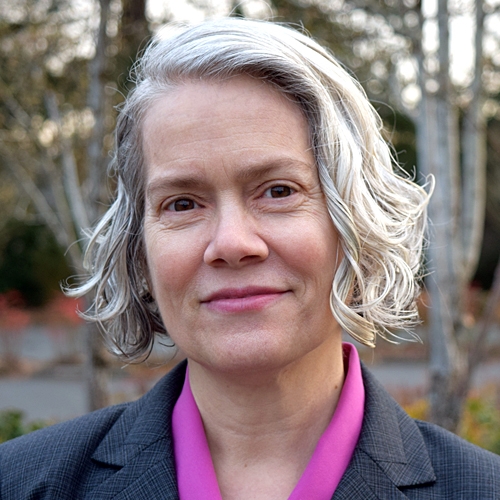
Heartbroken: Loss and Grief in the Perinatal Time Period

Cynthia Good, MS Clinical Psychology, is an International Board Certified Lactation Consultant, Clinical Counselor, author, consultant, and internationally recognized speaker. She is the Director of LifeCircle Consulting, LLC and is Certified in Acute Traumatic Stress Management. She is based in the Seattle, Washington, USA area, where she formerly served as an Adjunct Professor in the Department of Midwifery at Bastyr University where she taught counseling skills and is a therapist at Sandbox Therapy Group where she works with children, adults, and families. Cynthia has a strong interest in the emerging field of lactational psychology. She brings the evidence and insights of psychology and lactation consulting to her presentations, providing information and teaching skills that are essential to understanding and effectively responding to the complex psychosocial realities of families living in diverse contexts. The focus of her presentations includes communication skills and counseling techniques for perinatal care providers; equity, diversity, and inclusion; infant feeding rhetoric; perinatal mental health; perinatal loss, grief, and trauma; ethics; serving as an expert witness in lactation-related court cases; cultural competence and humility; vitamin D; and more.
Topic: Cultural Competence or Cultural Humility? A Roadmap for Lactation Specialists - [View Abstract]
Topic: Heartbroken: Loss and Grief in the Perinatal Time Period - [View Abstract]
Topic: It Wasn’t Supposed to be Like This: Traumatic Birth, Traumatic Stress, and Breastfeeding - [View Abstract]
Topic: My Brain is Doing What? Bias, Ethics, and the Lactation Specialist - [View Abstract]
Topic: Perinatal Mental Health Screening: A Primer for Lactation Specialists - [View Abstract]
Topic: The IBCLC as Expert Witness: Role, Strategies, and Resources - [View Abstract]
Topic: The Rug Pulled Out from Underneath Me: Depression During Pregnancy and After Birth - [View Abstract]
Topic: Unpacking the Invisible Diaper Bag of White Privilege: An Overview of Racial Inequities in Breastfeeding Support - [View Abstract]
Topic: We’re Human, Too: Hidden Dynamics in Our Communication with Clients - [View Abstract]
A variety of losses and types of grief are common in the perinatal time period. Some of these losses are specifically related to the reproductive and perinatal experience and some just happen to occur during pregnancy or after birth. Perinatal care providers who understand the diverse experience of loss and grief are better able to provide compassionate and effective care for the families they seek to serve. This presentation provides an overview of loss and grief, including the difference between bereavement, grief, and mourning; ambiguous loss; disenfranchised grief; prolonged grief; chronic sorrow; and depression. It also describes skills—such as companioning, screening, and referral—that are part of providing grief-sensitive care to expectant and new parents who are coping with loss and grief.

View Details / Enroll
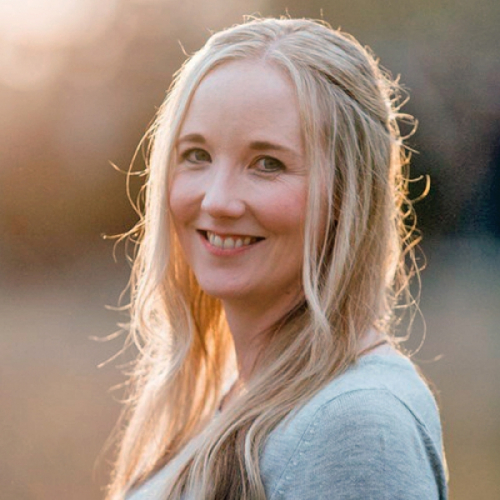

I am a Clinical Psychologist and transformation coach for women. I’ve also taught childbirth education. I have 12+ years experience supporting families through the worst traumas imaginable, to find growth, strength and beautiful resilience they never knew possible. After experiencing my own birth trauma (twice!) I quickly learned how little support and training there is for our birth workers who hear and witness these stories every day. From this, I developed two birth trauma training courses – one for parents, and one for birth workers. I gained over 650 enrolments in 3 months, so I know how much this work is needed. I also run a birth trauma training podcast, and I’m currently finishing writing my book. A beautiful, heartfelt call to action for families to not only find strength and growth after birth trauma, but to become the guardians of change in birth culture for the next generation.
"Birth trauma impacts at least 1 in 3 birthing people, but who is often left out of the picture? The partners. Vicarious trauma in birthing partners is very real, and yet there is little to no acknowledgment let alone resources to help.
Witnessing birth trauma in one’s partner has the potential to: (1) create severe cognitive dissonance (“I know what happened to my partner was wrong, yet I did nothing to stop it”), (2) contribute to unresolved feelings of shame, guilt, helplessness and rage, and/or difficulties with bonding (3) contribute to heightened nervous system activity (e.g., oscillating between ‘fight’ mode and ‘freeze’ mode), and (4) contribute to unhelpful, negative birth storytelling culture which minimizes the role of partners.
On the contrary, partners who are well supported (emotionally, cognitively and socially) have phenomenal potential for growth. In this presentation, we will explore what it means to work with partners through the lens of posttraumatic growth. How to validate and educate about trauma in a way that allows partners to step into self-compassion. We will explore how to inspire partners to see their own potential for growth, leadership and even advocacy.
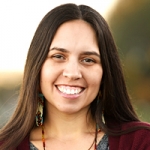
Historical Trauma, Racism and White Privilege: The Barriers to Breastfeeding Success

Camie Jae Goldhammer, MSW, LICSW, IBCLC, (Sisseton-Wahpeton) is a Clinical Social Worker and Lactation Consultant. Camie received her Master of Social Work degree from the University of Washington in 2006, specializing in Maternal Mood Disorders and the affects of complex/Intergenerational trauma on attachment, bonding and the parenting practices of Native families.
Camie is the founder and chair of the Native American Breastfeeding Coalition of Washington. She is also a founding mother and President-Elect of the National Association of Professional and Peer Lactation Supporters of Color. In 2013 she became Washington state's first Native American IBCLC. Camie is a consultant with CHEER and is also a part of the Center for Social Inclusion’s First Food Racial Equity Cohort. Recently she worked as a Campaign Director with MomsRising working to bring paid family and medical leave to Washington State which was signed into law in July 2017. She is now a member of the MomsRising breastfeeding team. She is a National leader on topics of racial equity and first food justice and recently launched the Indigenous Breastfeeding Counselor training.
Topic: Historical Trauma, Racism and White Privilege: The Barriers to Breastfeeding Success - [View Abstract]
Too often when discussing barriers to breastfeeding there tends to be a focus on education, poverty, and familial support. However, when we truly look at the causes of health disparities and inequities it is racism and discrimination that are at fault. For many of us, this can be a difficult realization and conversation to have. In this session, Ms. Goldhammer will discuss how Communities of Color are impacted by intergenerational trauma specifically when it comes to attachment and bonding as well as the role that racism and white privilege play in today’s modern day field of lactation. She will conclude with ways in which we can create meaningful impact and further advance racial equity in our field and most importantly in the communities we serve.

View Details / Enroll
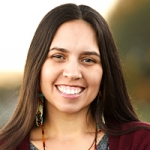
View Details / Enroll
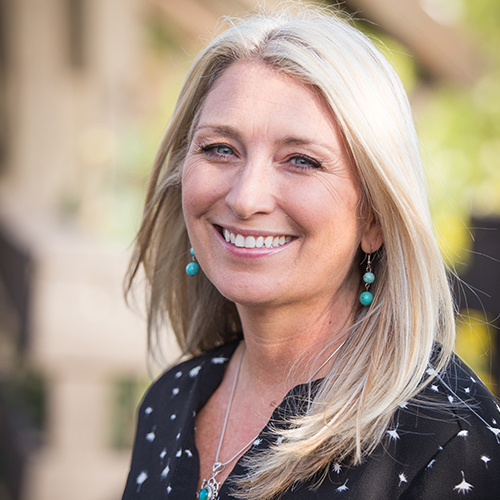
Hold the Phone! Diet Does Matter During Breastfeeding: Implication of Diet on Fatty Acid Composition and Other Nutrients

Laurel Wilson, BS, IBCLC, CCCE, CLE, CLD, CPPFE, CPPI owns MotherJourney in Morrison, Colorado. She has her degree in Maternal and Child Health – Lactation Consulting. With twenty-five years of experience working with Parents in the childbearing year and perinatal professionals, Laurel takes a creative approach to working with the pregnant family. She is a co-author of best-selling books, The Greatest Pregnancy Ever: The Keys to the MotherBaby Bond and The Attachment Pregnancy: The Ultimate Guide to Bonding with Your Baby. She currently spends a great deal of her time working with hospitals seeking BabyFriendly Status as a consultant and educator. She strives to provide the latest techniques, research and programs to her clients. Laurel is a board certified as a lactation consultant, childbirth educator, labor doula, lactation educator, Prenatal ParentingTM Instructor, and Pre and Postpartum fitness educator. She served as the CAPPA Executive Director of Lactation Programs for 16 years and trained Childbirth Educators and Lactation Educators for CAPPA certification. She is on the Board of Directors for the United States Breastfeeding Committee, a Senior Advisor for CAPPA, and also on the Advisory Board for InJoy Health. Laurel has been joyfully married to her husband for more than 25 years and has two amazing sons, whose difficult births led her on a path towards helping emerging families create positive experiences. She believes that the journey towards and into parenthood is a life changing rite of passage that should be deeply honored and celebrated.
Topic: Epigenetics and Breastfeeding: The Potential Longterm Impact of Breastmilk - [View Abstract]
Topic: Hold the Phone! Diet Does Matter During Breastfeeding: Implication of Diet on Fatty Acid Composition and Other Nutrients - [View Abstract]
Topic: Postpartum Mood Disorders, Breastfeeding and the Epigenetic Links from Past Into Future - [View Abstract]
Topic: Talk To Me: How Breastmilk Acts as a Communication and Gene Expression Tool Between Mother and Child - [View Abstract]
Topic: The Milk Sharing Conundrum - The Grey Area Between Scope and Need - [View Abstract]
Topic: The Placenta and Breastmilk-Unraveling the Mysterious World of the Intelligent Organs that Protect our Babies - [View Abstract]
Topic: Understanding Zika and Lyme and Breastfeeding - [View Abstract]
Topic: Unraveling the Mysteries of Human Milk: The Fascinating Role of Neohormones, Epigenetics, the Microbiome and More! - [View Abstract]
For more than a decade most lactation professions have been suggesting to families that diet matters very little in terms of breastmilk composition. We have told parents that they can essentially eat whatever they want, it does not matter to the bottom line. However, new studies imply that in fact, diet does matter in terms of the composition of fatty acids and essential nutrients available in milk that can potentially impact life long health. Studies also show that changes in diet can lead to gene methylation which impacts gene expression, as well changing the oligosaccharide profile which shapes the microbiome. This presentation takes you on a tour of some recent research finds to better understand how maternal diet (potentially prenatally through lactation) DOES play a role in breastmilk and how a parent’s diet can potentially influence a breastfeeding baby’s health.

View Details / Enroll


Linos Muvhu is The Secretary and Chief Talent Team Leader of Society for Pre and Post Natal Services’ (SPANS) Maternal, Paternal and child mental health programme in Zimbabwe. SPANS promotes good mental health across the life course starting in the perinatal period. It is a national evidence based family focused program. Linos trained as a family therapist with Connect (Zimbabwe Institute of Systemic family Therapy). He is Africa Ambassador for Fathers Mental Health Day and passionate about the rights of all people to enjoy good sound mental health, in particular the right for good family mental health and in 2016, he initiated the first ever International Conference on Maternal Mental Health in Africa (ICAMMHA.)
Poor mental health affects the expectant mothers and father's overall emotional, environmental, social, spiritual and physical well-being, but also impacts unborn, newborn and developing children, partners, family, friends, and society as a whole. Championing early diagnosis and screening of mental health to every expectant mother and father during their routine antenatal and postnatal care visits; Awareness campaigns in communities about maternal, paternal and child health mental health issues to improve the uptake of services; Training community health care workers (early detecting, screening, and treatment of maternal and child mental illness). The Mashonaland east province under Goromonzi district is a pre-urban and a rural setting in Zimbabwe. A neglected area that significantly impacts maternal and child mortality and morbidity are that of maternal, paternal and child mental health is the main area of focus of this presentation.
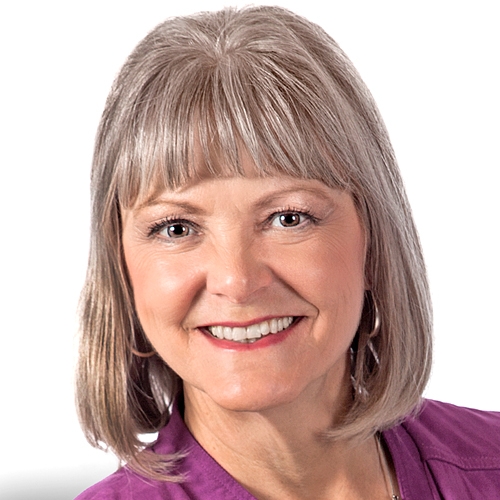

Karen has worn a number of hats in her nursing career but always comes back to her passion for premature babies. Her background includes NICU nurse, transport nurse and NICU educator, rural nursing, staff development, pediatrics, pediatric intensive care, and community health. For over 20 years Karen has lead Calgary’s specialized “Neonatal Transition Team”, which she will talk about today. Karen has presented locally, nationally, and internationally and has also been co-investigator in several research and quality improvement studies examining outcomes for very low birth weight infants. For nearly 30 years, Karen taught, wrote instructional material, and produced on-line courses for nurses to earn a certificate in neonatal nursing through Mount Royal University. Karen is a past-president of the Canadian Association of Neonatal Nurses and served on this national board for 12 years, and on the international board of the Council for International Neonatal Nurses for 3 years. In 2019, Along with co-author, Tammy Sherrow, Karen published the book “Preemie Care: A guide to navigating the first year with your premature baby”.
Topic: Home Sweet Home? Realities and Remedies - [View Abstract]
Topic: “Zooming Ahead”; Post-NICU Discharge Very-Low-Birth-Weight Infant Follow-up Program Goes Virtual - [View Abstract]
Discharge teaching programs are typically established based on what we as health care providers think parents need to know. Reality sets in very quickly for families after taking home a premature newborn. Despite thorough discharge teaching and parent involvement in hospital, parents are surprised by the challenges they face post-discharge. Feeding, behavior, reflux, sleep, and parenting troubles top the list. Based on over twenty years’ experience working with premature infants and their families beyond discharge, the presenter will reveal common challenges encountered and discuss research-based and practical strategies for the NICU team to share with parents to smooth the transition home. A greater knowledge of post discharge sequelae and preventative strategies will aid the NICU team in optimizing the discharge process and ultimately improve outcomes for babies and parents.

View Details / Enroll
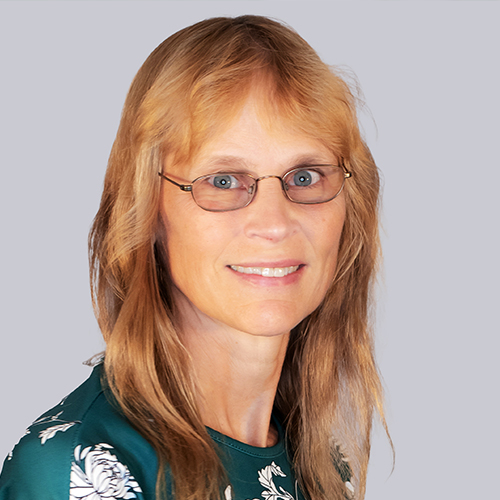
How Do You Respond to the Unusual? Case Studies of Uncommon Events in Birth

Bonnie Urquhart Gruenberg, CNM, MSN, CRNP, is the award-winning author of Birth Emergency Skills Training; Manual for Out-of-Hospital Midwives, and co-developer of the workshop by the same name. In 2023, her long-awaited seminal work, Birth Emergencies for Community Midwives, will come to press. She has caught more than 2,100 babies to date in the home, in a free-standing birth center, and in the hospital. She currently works for Wellspan Health in Lancaster County, PA. Bonnie has written and illustrated 12 books on topics ranging from midwifery and maternity care to wild horse management. She enjoys painting, photography, and hobby farming.
Topic: Placentas Behaving Badly - [View Abstract]
A seasoned midwife sometimes encounters unusual situations in clinical practice. In these unique case studies, we will consider the challenges of paravaginal birth, uterus didelphys, cervical myoma, and acute urinary retention in the second trimester.

View Details / Enroll
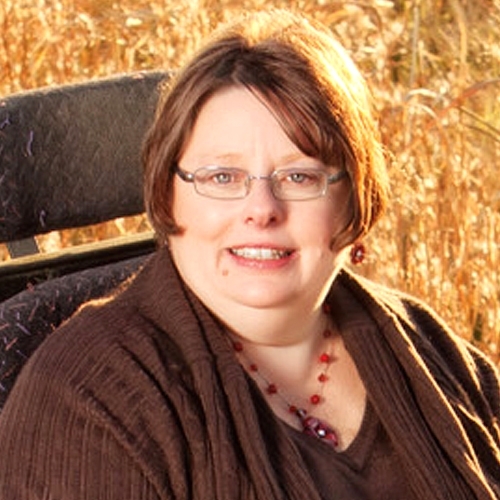
How to Correctly Use Peanut Balls During Labor

Cheri Grant RN, ICCE, CLC, ICD, CLD, CD BDT(DONA). Is the Coordinator of LifeStart Program at St John Owasso Hospital. Childbirth Graphics named her “The Peanut Ball Lady” She is the founder and consultant for Premier Birth Tools a website that has resources for peanut balls and its mission is to get peanut balls in every hospital in the United States with resources for everyone in the world, and to teach how to use it correctly. She continues to guest lecture to OU, OSU residents and nurses on maternal and child health topics such as the "Secrets of Labor Support." She spoke on the peanut ball at the National LAMAZE convention “The Peanut Ball- New Tool for Your Doula Bag and Its Effect on Laboring Women “She has also published several an articles on the peanut ball including " The Peanut Ball: A Remarkable Labor Support Tool " in the DONA international magazine and the "Peanut Ball, Improving Options for Women Laboring with an Epidural" in Australian Midwifery News. She has recently been featured on the Podcast “How do Peanut Balls Support Labor? “ for Evidence Based Birth. She is an Authorized Peanut Ball Trainer and has developed many educational tools for the peanut ball. She also has given over 100 in-services on the peanut ball. She is the Founder of Tulsa Doulas Inc. Doulas of Northeastern Oklahoma which she started 25 years ago. She is a Birth DONA Doula Trainer her certificate number is #2 as a trainer for DONA. She is certified as a Doula through DONA, ICEA and CAPPA. She is an internationally certified childbirth educator through ICEA for over 30 years. Cheri is an author of “Labor Support Forms – A Guide to Doula Charting” which is in its Third edition and on the app Mobile Doula . Several of her articles have been published in ICEA and DONA Journals. She has lectured at DONA international conventions and AWHONN State conventions “. The Peanut Ball" and Implications for Women Health”. She also produced and directed a Video on “Comfort Measures for Labor.” She teaches and coordinates training workshops for Birth Doulas and nurses talking about the profession of doulas around the country. She previously was a lactation consultant IBCLC for over 10 years. She also maintains her lactation educator. Previously she was also AWHONN certified in-patient obstetrical nurse for many years. She was also featured on the front page of the Tulsa World for her 42 years of work with pregnant and laboring women. Teaching and speaking about how to correctly use the peanut ball is her passion.
In this presentation, those new to the peanut ball will learn how to use this tool to progress labor and experienced birth professionals will expand their knowledge. You will learn the original seven peanut ball positions and be introduced to a few new advanced positions. You’ll learn the latest research on peanut balls use in labor. You will learn how to properly cover, clean and store peanut balls. You will learn how to correctly size peanut balls for your client depending on what position they are using in labor. One size peanut ball does not fit all clients. Identify contraindications for the peanut balls. Differentiate how to place clients hips internal or external rotation, using this information in relation to where the baby is in the pelvis such as in the inlet, midpelvis, and outlet when using a peanut ball as a labor tool.


Duncan Fisher promotes and develops support for parents to advance child health and development. In the last year he has been working with breastfeeding researchers across the world and with the World Alliance for Breastfeeding Action to advance the idea of "breastfeeding as teamwork", following striking findings from research of the high gains from engaging with fathers and other family members. In UK he co-founded the Fatherhood Institute and for three years he served on the Board of the Government’s gender equality body, the Equal Opportunities Commission. He manages the website, FamilyIncluded.com, where all recent research on breastfeeding and fathers/families is reported. He initiated and currently manages a website for Cambridge and Princeton Universities reporting research on child welfare and development, ChildandFamilyBlog.com. He was awarded an OBE by the Queen in 2008 for his “services to children”. Duncan lives in Wales and divides his time between family work and work to support sustainable economic development in his home country.
Breastfeeding programmes that engage fathers are more effective than ones that only involve mothers and professionals. This accords with research that has shown that family is the main influence on breastfeeding. The way that families influence breastfeeding is diverse, depending on the make-up of the family, local culture and location (e.g. urban/rural). The influence of fathers is not necessarily intentional, but what fathers think and do influences the situation in almost every situation. In this presentation I will describe the principles of success that have been learned from programmes with published evaluations. These principles can be summed up in the phrase recently adopted by the World Alliance for Breastfeeding Action, "breastfeeding is teamwork".
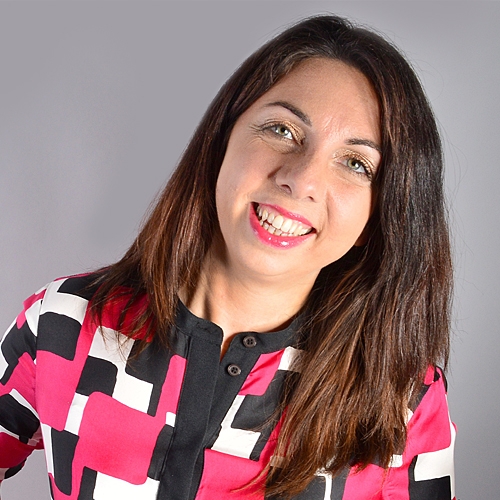

Alexia is a therapeutic coach, the author of Fearless Birthing, and the host of the award-nominated and chart-topping Fear Free Childbirth podcast. What began as a maternity leave side project is now an essential destination for women with a fear of birth with thousands of women now using Alexia’s site every month to lose The Fear. Alexia helps them to prepare for birth through her private sessions, online courses and membership community.
At the heart of Alexia’s work is a unique fear-clearance method, which women around the world are now using to help them prepare for their birth, and that she successfully uses to help women overcome tokophobia. Alexia also provides training to pregnancy and birth professionals who want to use her Fearless Birthing approach so that more women can access this level of fear-clearance support in preparing for pregnancy and birth.
Fear of childbirth is thought to affect up to 50% of women. In some women, this fear is so strong that they choose not to have children. For those who do, their fear will most likely have an impact on their birth choices and their birth experience. Helping a woman to reduce her fear of birth can be transformative for her experience as a new mother as well as for the family. Reducing fear in women can also contribute to reducing the healthcare costs associated with CS delivery and post-natal mental health. In this presentation, Alexia Leachman will explore the nature of fear of birth, and its most extreme relation, tokophobia. She will discuss where fears come from, why birth isn’t always the problem, and how we can help women to overcome them so that they can go on to experience a fear free childbirth.

View Details / Enroll



